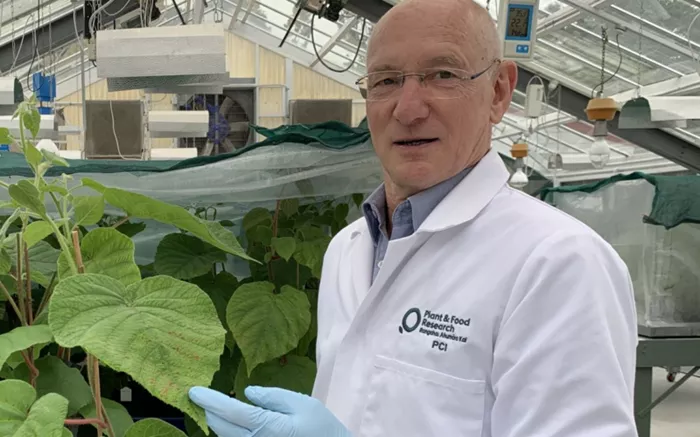New Zealand Seaweed May Offer Solution to Protect Plants from Disease and Climate Change.
Recent research suggests that New Zealand seaweed could hold the key to safeguarding plants from diseases and the effects of climate change.
Dr. Marie Magnusson and Dr. Christopher Glasson from the University of Waikato, along with Plant & Food Research principal scientist Dr. Joel Vanneste, have collaborated to explore how seaweed sugars might benefit New Zealand’s horticulture sector.
Their research has been awarded $11.4 million from the Ministry of Business, Innovation and Employment Endeavour Fund, covering five years.
The study has revealed that sugars from New Zealand seaweed act as elicitors in kiwifruit. Elicitors are compounds that activate a plant’s defense mechanisms, making it more resistant to pathogens such as Psa, which has severely impacted New Zealand’s kiwifruit industry.
Similar to how vaccines work for humans, these seaweed-derived polysaccharides help kiwifruit plants build resilience against diseases and environmental stresses like drought, flooding, and high temperatures—conditions becoming more frequent due to climate change.
Dr. Vanneste explained that elicitors provide preemptive protection, akin to an insurance policy for plants. “They offer growers peace of mind without ruling out other control methods,” he said. “Priming plants before they face stress can minimize the need for expensive interventions. Discovering a biological elicitor, especially one usable by organic growers, could revolutionize horticulture.”
Dr. Magnusson noted that concerns about the environmental and health impacts of existing horticultural management practices motivated this research. “We aim to create valuable seaweed-based products that are effective and environmentally friendly. Using these plant immune enhancers could protect crops from various diseases and lessen reliance on synthetic chemicals,” she said.
The new technology will be tested on kiwifruit, apples, and tomatoes, with plans to extend to other key crops like wheat.
The project also integrates Māori-led research to establish best practices for developing bioproducts from native species.
The potential impact of this research has been recognized by Zespri. Bryan Parkes, Zespri’s head of innovation acceleration, expressed support for developing low-environment-impact crop protection solutions. “If successful, the seaweed-based approach could benefit not only the kiwifruit industry but also other crop sectors,” he said.
Related topics:
- 7 Plants to Add Bright Colors to Your Fall Garden for a Touch of Autumn Beauty
- Flowers That Paint Themselves: Nature’s Masterpieces
- Plant Spider Lily Bulbs in Pots for Stunning Fall Blooms and Enhanced Curb Appeal


